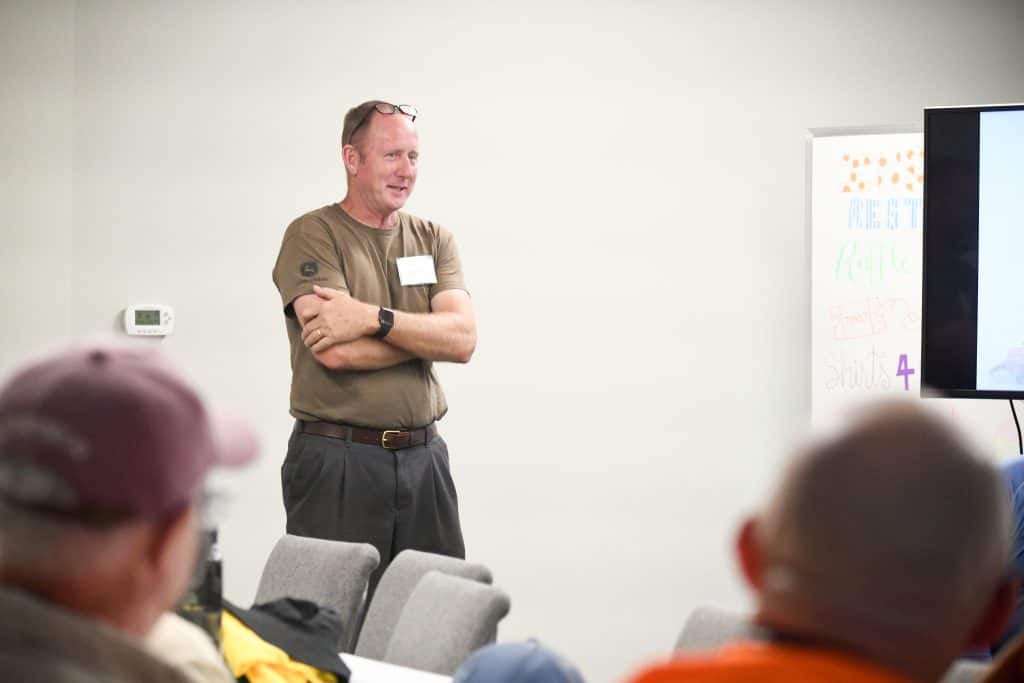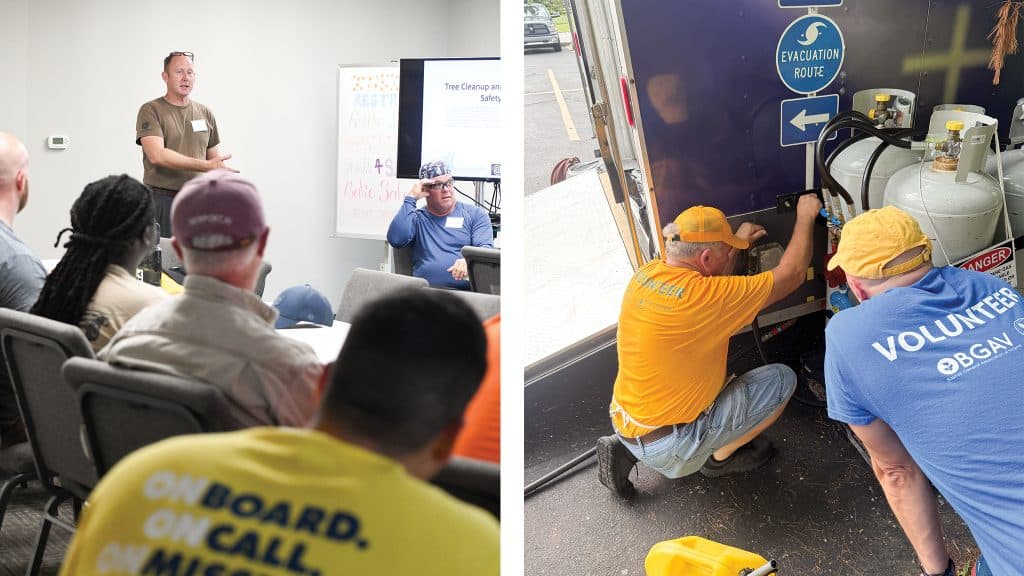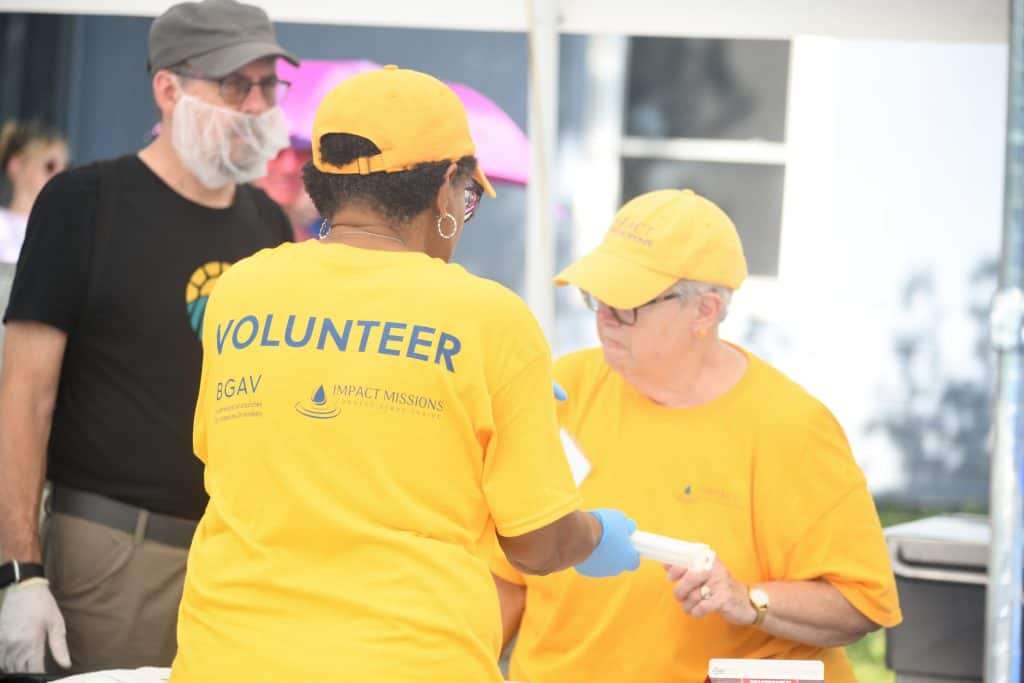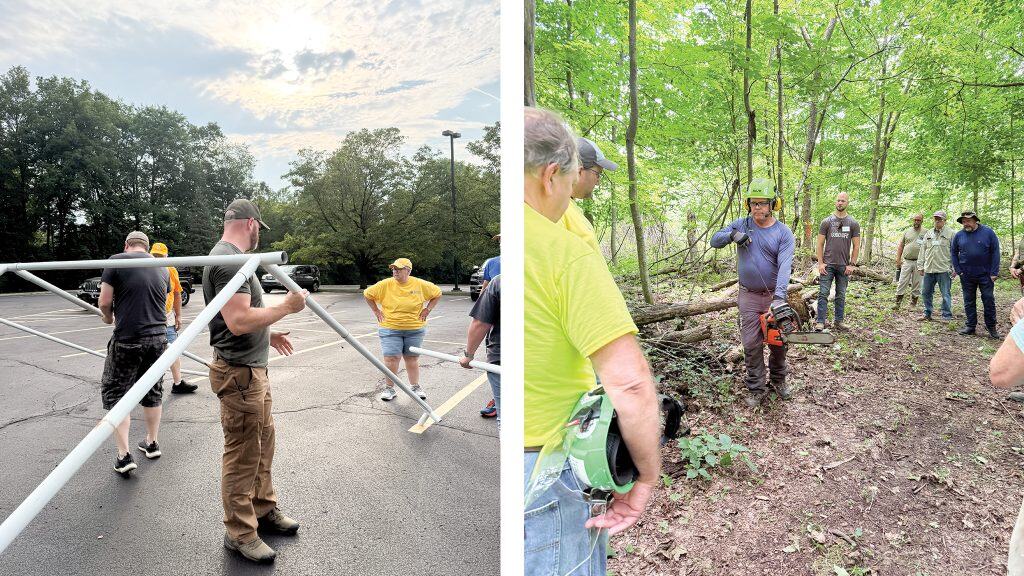When disaster strikes, it turns people’s lives upside down. In a matter of moments, a flood, hurricane, tornado, or manmade crisis can rob someone of everything they’ve worked so hard to build. Lost, lonely, and hopeless, they are searching for help from someone they can trust. Driven by your faith in Christ, you can be the answer to their prayers!
Since launching in the fall of 2024, Charis Disaster Response (CDR) has sought ways to serve those impacted by disasters. Over the past year they have responded to a tornado in Ohio and two hurricanes in Florida, and facilitated church teams to deploy independently.
In an effort to be equipped to respond well when the time arises, CDR is organizing a series of regional training events. The events will cover specific areas of training, including chainsaw and tree removal, fire and flood recovery, operation of mobile shower and laundry facilities, and safe food handling and mass feeding.
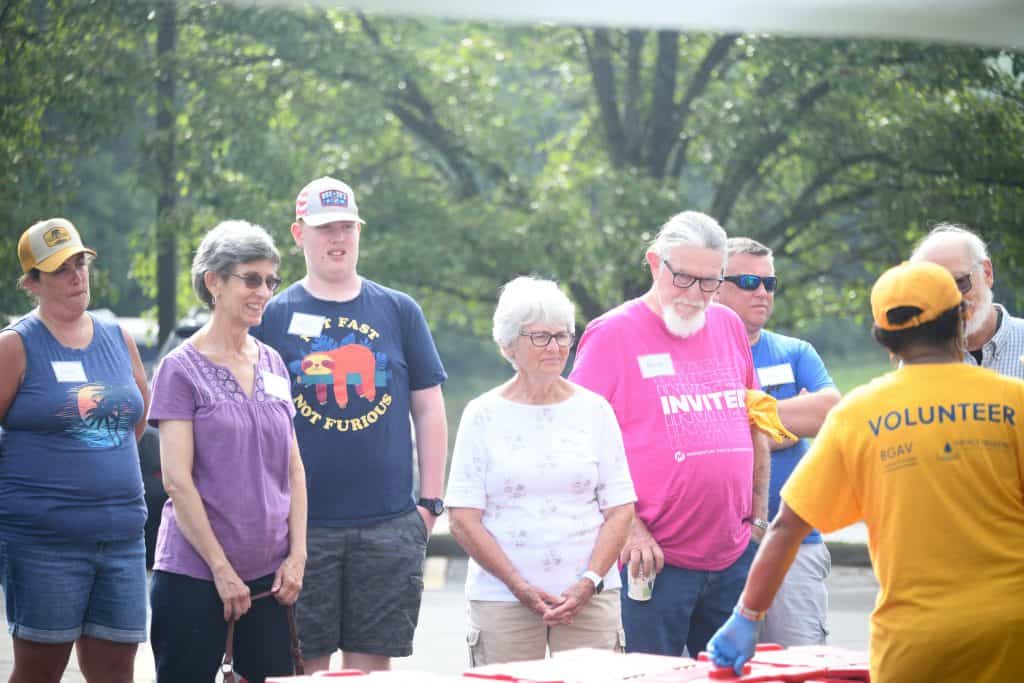
These trainings are offered in partnership with On Mission Network, a ministry network with decades of experience in training and empowering people and churches to effectively respond when disaster strikes.
The first regional training took place on June 28 in Pataskala, Ohio. On Mission Network facilitated the training, and 35 people from around Central Ohio attended. Impact Disaster Response, the disaster response team of the Baptist General Assembly of Virginia, brought a chainsaw unit and mass feeding unit to provide hands-on training.
Dennis Mahoney, of On Mission Network, taught the entire group about how to “mud/muck out” a house after a flood and how to “ash out” a house after a fire. He covered important safety procedures and reminded people of the importance of engaging with people in the community while serving. After this training, the group split into either chainsaw or feeding for further training.
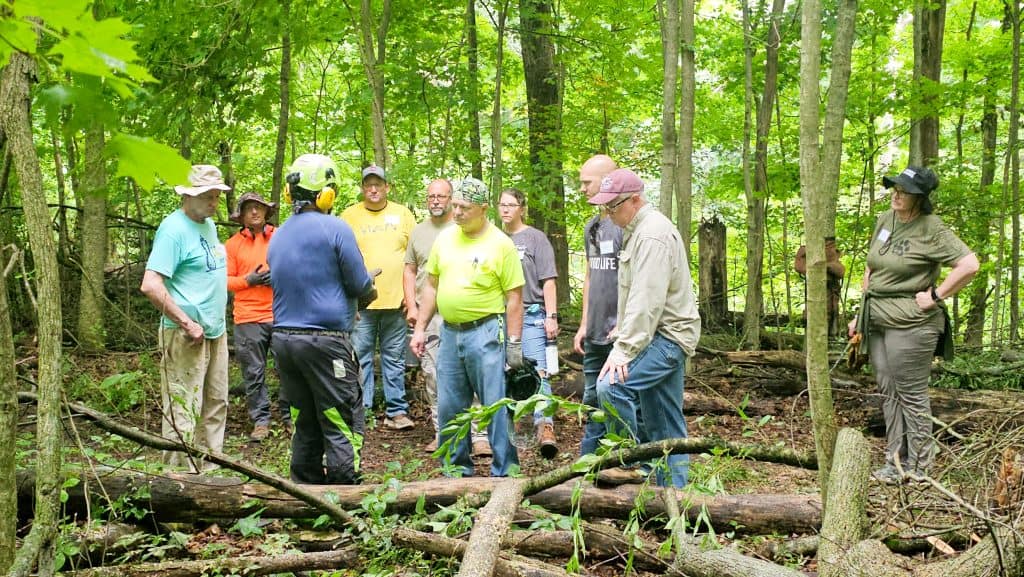
The chainsaw unit team provided classroom training on safety and process for using chainsaws and skid steers for tree removal. The group then practiced hands on training with equipment. The mass feeding unit, equipped to feed up to 5,000 people, practiced their training by preparing lunch for the group.
Todd Derry, CDR coordinator, had two hopes for this series of trainings. First, he wanted people to see the large scope of ways to serve and to understand not all of serving was physically demanding. Second, for those who desire to deploy when there is a need, they are trained and prepared for the task in which they want to serve.
CDR is planning other regional trainings over the next several months. More information will be provided once it is available. For questions, contact CDR Coordinator Todd Derry at DisasterResponse@CharisFellowship.com.
